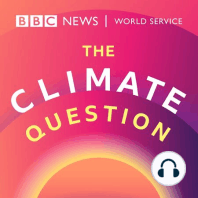26 min listen

Is our obsession with GDP killing the climate?
Is our obsession with GDP killing the climate?
ratings:
Length:
27 minutes
Released:
Feb 13, 2022
Format:
Podcast episode
Description
For nearly a century, governments around the world have measured the health of their economies by a single metric: GDP, or Gross Domestic Product. It measures a country’s economic growth, and over the years has become a shorthand for national progress; a rising GDP is generally understood to mean more people in work, more companies in business, living standards on the rise.
Yet, as experts have argued for decades, there is a lot that GDP leaves out. While it measures the value of all goods and services produced and consumed in an economy, it doesn’t account for nature, wellbeing, or planetary health. To GDP, a 100-year-old carbon capturing tree is worthless until its chopped down and sold as timber. Cleaning up after disasters, such as extreme weather events, improve GDP due to the increase in spending - even as people and planet suffer the consequences.
In an age of climate breakdown, many economists are arguing that our obsession with GDP is damaging the planet. So is it time to ditch GDP as a measure of progress and come up with a new metric that puts sustainability at its core?
Presenters Jordan Dunbar and Tanya Beckett are joined by the economists:
Professor Kate Raworth, Senior Associate at Oxford University’s Environmental Change Institute
Professor Tim Jackson, Director of Centre for Understanding Sustainable Prosperity
Professor Jayati Ghosh, University of Massachusetts, Amherst
Dr Celestin Monga, visiting professor of public policy at Harvard University
Yet, as experts have argued for decades, there is a lot that GDP leaves out. While it measures the value of all goods and services produced and consumed in an economy, it doesn’t account for nature, wellbeing, or planetary health. To GDP, a 100-year-old carbon capturing tree is worthless until its chopped down and sold as timber. Cleaning up after disasters, such as extreme weather events, improve GDP due to the increase in spending - even as people and planet suffer the consequences.
In an age of climate breakdown, many economists are arguing that our obsession with GDP is damaging the planet. So is it time to ditch GDP as a measure of progress and come up with a new metric that puts sustainability at its core?
Presenters Jordan Dunbar and Tanya Beckett are joined by the economists:
Professor Kate Raworth, Senior Associate at Oxford University’s Environmental Change Institute
Professor Tim Jackson, Director of Centre for Understanding Sustainable Prosperity
Professor Jayati Ghosh, University of Massachusetts, Amherst
Dr Celestin Monga, visiting professor of public policy at Harvard University
Released:
Feb 13, 2022
Format:
Podcast episode
Titles in the series (100)
The secret solution to climate change: Empowering women, reducing emissions and improving the lives of millions of people by The Climate Question